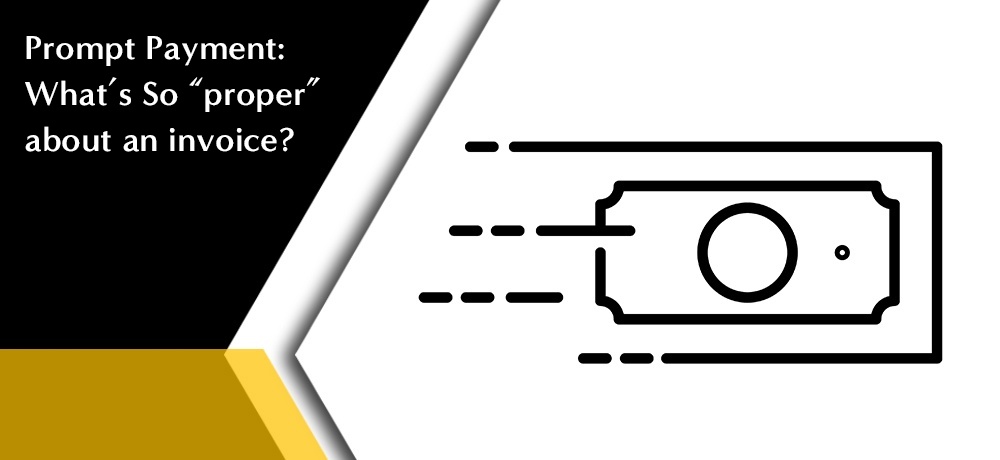Prompt Payment: What’s so “proper” about an invoice?

The prompt payment regime under the Construction Act, requires "prompt" payment of invoices submitted by the contractor to the owner. A contractor is defined in the Construction Act as the party contracting with or employed directly by the owner or an agent of the owner to supply services or materials to an improvement. This means that a contractor includes anyone with a direct contract with the owner, for example: an architect, designer or supplier.
The triggering event for prompt payment is the contractor giving the owner a “proper invoice”, i.e. a written bill or other request for payment. After given a proper invoice, an owner is required to:
- dispute all or part of the proper invoice within 14 calendar days of receipt of the proper invoice; and/or
- pay all or the undisputed amount of the proper invoice within 28 calendar days of receipt of the proper invoice.
This article discusses the mandated requirements for a proper invoice as well as other requirements that you may want to include in your contracts. For example, many standard form contracts, such as CCDC contracts, are prepared for use across Canada, and may require some modifications to meet the requirements of Ontario’s Construction Act.
Mandatory requirements for a “proper invoice”
The Construction Act sets out the minimum requirements for an invoice to be a “proper invoice”. These requirements are:
- The contractor’s name and address.
- The date of the proper invoice and the period during which the services or materials were supplied.
- Information identifying the authority, whether in the contract or otherwise, under which the services or materials were supplied.
- A description, including quantity where appropriate, of the services or materials that were supplied.
- The amount payable for the services or materials that were supplied, and the payment terms.
- The name, title, telephone number and mailing address of the person to whom payment is to be sent.
- Any other information that may be prescribed.
The Construction Act allows the parties to include other proper invoice requirements in their contracts, with two exceptions:
- a proper invoice cannot be conditional on owner approval; and
- a proper invoice cannot be conditional on payment certification. However, it can require the testing and commissioning of the improvement or of services or materials supplied under the contract.
Considerations for “proper invoice” requirements to add to contracts
Beyond the mandatory requirements and restrictions in the Construction Act, the parties can agree on other requirements of a proper invoice. It is common for the parties to agree to require a statutory declaration that all subcontractors and trades have been paid in full, and a WSIB clearance certificate.
Other items that may be added to the requirements for a “proper invoice” include:
- updated schedule
- schedule of values
- approved change order work and extras; and
- “non-waiver” clauses.
“Proper invoice” submission process considerations
Given the complexity of the prompt payment regime (a subject which will be featured in a future article), here are some steps that can make the process more manageable for an owner:
- consider requiring that the proper invoice be given on a specific date each month so that it is easier to track the timing to pay and give notices of non-payment;
- consider setting out invoice delivery requirements, including a portal or e-mail address where invoices will be submitted;
- consider the appropriate billing period. The billing cycle can be monthly (the default if not specified in the contract) or based on milestone.
Here are some steps for contractors to consider to make the process more manageable:
- require subcontractors furnish the material and information that the contract needs to supply to the owner with the proper invoice; and
- have a process to review the proper invoice to ensure it meets the contractual obligations before it is submitted (if it is not a proper invoice it does not trigger
prompt payment obligations).
Final considerations
Time is money. A proper invoice can be adjusted or corrected after submission, with the owner’s consent. Doing so will not change the date of the proper invoice.
If you have any questions about a proper invoice or the prompt payment regime, please reach out to a member of Construct Legal!
The information contained in this article is not legal advice.